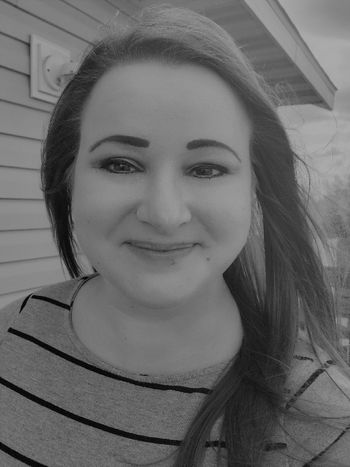University pays $12,750 for author of ‘White Fragility’ to speak on campus, pays Black speaker thousands less
"White Fragility" author Robin DiAngelo was recently paid an exorbitant speaking fee at UW-Madison.
The school said she set her own fee, which was considerably higher than that of her Black counterpart who spoke at the same event.
A University of Wisconsin-Madison’s Diversity Forum virtual event titled, “The Pandemic Effect: Exposing Racism & Inequities” hosted White Fragility author Robin DiAngelo and I’m Still Here: Black Dignity in a World Made for Whiteness author Austin Channing Brown. Ironically, the event on “exposing racism & inequalities” paid DiAngelo thousands of dollars more than her black counterpart.
DiAngelo, who is best known for her bestselling book White Fragility: Why It’s So Hard for White People to Talk About Racism, was paid $12,750 by the University for her to speak, according to documents obtained by Campus Reform.
Brown, who is a black female, was paid $7,500 to participate in the same event, which is 70 percent less than what DiAngelo was paid. The same agency represented both authors regarding payment.
The two-day event on Oct. 27 and 28 was intended to “explore a convergence of contemporary issues from racial equity and social justice to disparities in health care and white privilege during two full days of speakers and interactive sessions.”
[RELATED: Plans to disarm Portland State campus police on hold after too many quit]
The event featured two keynote speakers “both of whom focus on the sociology and impact of race and race relations.” The schedule for DiAngelo started at 9:00 a.m. with her keynote address titled, “Seeing the Racial Water.”
“What does it mean to be white in a society that proclaims race meaningless yet is deeply divided by race?,” reads the description for her keynote “Dr. DiAngelo will describe the way race shapes the lives of white people, explain what makes racism so hard for white people to see, and the concept of white fragility that prevents us from moving towards greater racial equity.”
After the keynote address, there were break out sessions followed by a Q & A with DiAngelo. The first break out room was titled, “Our New Inequities: Recognizing the Effects of Historic Racial Disparities During Covid-19.”
The second break out room was called, “Activating the Commitment to Change: History of Campus Activism,” and the third bore the title “Stress as a Public Health Crisis: The Daily Grind of Discrimination and Racism on Campus and Beyond.”
Student Keely Collins told Campus Reform that colleges are supposed to remain unbiased, adding that she isn’t surprised the university paid so much for DiAngelo to speak.
“I wish I could say I am surprised that UW-Madison is virtue-signaling to the far Left however, I am not. A public institution is supposed to remain unbiased yet UW-Madison continues to fail to do so. In DiAngelo’s book, she asserts all white people are racist. This could not be further from the truth and is a made-up construct by the Left.”
“By hosting a virtual event for students with the author, the university is targeting White students and shaming them for being White. That is reverse racism. If the tables were turned and the university paid over $12,000 for a speaker to accuse all Black students of being racist, campus would be up in arms. The double standard needs to stop and the university needs to stop feeding into this far-Left narrative.”
DiAngelo initially coined the term “White Fragility” in 2011, and then garnered more attention with the release of her book in 2018. During a 2019 interview, she defined what white fragility means, stating, “when I coined that term, the fragility part was meant to capture how little it takes to upset white people racially.”
[RELATED: Broward College lists resource for professors to ‘incorporate’ BLM into the classroom]
“For a lot of white people, the mere suggestion that being white has meaning will cause great umbrage. Certainly generalizing about white people will,” she said.
She continued to say that white people get defensive and use their feelings as weaponry. She then stated, “We white people make it so difficult for people of color to talk to us about our inevitable—but often unaware—racist patterns and assumptions that, most of the time, they don’t.”
“People of color working and living in primarily white environments take home way more daily indignities and slights and microaggressions than they bother talking to us about because their experience consistently is that it’s not going to go well.”
During a recent interview in October, DiAngelo explained how the definition of racism further perpetuates the system of racism and causes white people to be defensive.
“Most of us believe that a racist is an individual who consciously doesn’t like people based on race and is intentionally mean to them,” she said. “I don’t know if you could have come up with a more effective way to protect the system of racism than that definition, and I think it’s the root of most white defensiveness, because it makes being a good moral person in complicity with the system that we live in mutually exclusive.”
[RELATED: Appeals Court rules Harvard doesn’t discriminate against Asian-Americans]
When Campus Reform asked the University of Wisconsin-Madison about DiAngelo’s speaking fee, Director of News and Media Relations Meredith Mcglone said that the fee was set by DiAngelo’s team.
“UW–Madison has made it a priority to improve campus climate and ensure all members of our community are able to thrive,” said Mcglone. “The insights she shared with the 3,300 people who attended will help us do that work with grace and deeper understanding. Speaker fees are set by the agency that represents the speaker.”
Campus Reform reached out to DiAngelo for comment but hasn’t received a response.
Follow the author of this article on Twitter: @mn_turn

